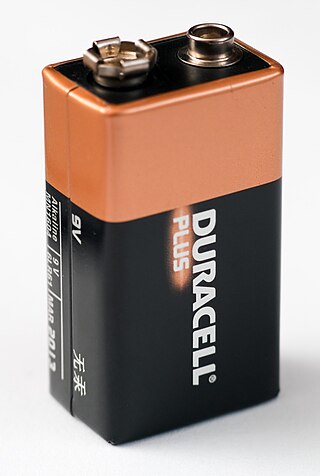
Commodore International was an American home computer and electronics manufacturer founded by Jack Tramiel. Commodore International (CI), along with its subsidiary Commodore Business Machines (CBM), was a significant participant in the development of the home computer industry in the 1970s to early 1990s. In 1982, the company developed and marketed the world's best-selling computer, the Commodore 64, and released its Amiga computer line in July 1985. Commodore was one of the world's largest personal computer manufacturers, with sales peaking in the last quarter of 1983 at $49 million.

Fujitsu Limited is a Japanese multinational information and communications technology equipment and services corporation, established in 1935 and headquartered in Tokyo. It is the world's sixth-largest IT services provider by annual revenue, and the largest in Japan, in 2021. The hardware offerings from Fujitsu are mainly of personal and enterprise computing products, including x86, SPARC and mainframe compatible server products, although the corporation and its subsidiaries also offer a diversity of products and services in the areas of data storage, telecommunications, advanced microelectronics, and air conditioning. It has approximately 126,400 employees and its products and services are available in approximately 180 countries.
VAIO is a brand of personal computers and consumer electronics, currently developed by Japanese manufacturer VAIO Corporation, headquartered in Azumino, Nagano Prefecture.

TAXAN was a brand of Kaga Electronics Co. Ltd, Tokyo, Japan. It was founded in July 1981. In the late 1980s and early 1990s, the US division published several video games on the NES and Game Boy. The company shut down in 1991 according to former employee Ken Lobb.

ESET, s.r.o., is a Slovak software company specializing in cybersecurity. ESET's security products are made in Europe and provide security software in over 200 countries and territories worldwide, and its software is localized into more than 30 languages.

Duracell Inc. is an American manufacturer of alkaline batteries, specialty cells, and rechargeables; it is a wholly owned subsidiary of Berkshire Hathaway. The company has its origins in the 1920s, through the work of Samuel Ruben and Philip Mallory, and the formation of the P. R. Mallory Company.

Rebranding is a marketing strategy in which a new name, term, symbol, design, concept or combination thereof is created for an established brand with the intention of developing a new, differentiated identity in the minds of consumers, investors, competitors, and other stakeholders. Often, this involves radical changes to a brand's logo, name, legal names, image, marketing strategy, and advertising themes. Such changes typically aim to reposition the brand/company, occasionally to distance itself from negative connotations of the previous branding, or to move the brand upmarket; they may also communicate a new message a new board of directors wishes to communicate.
Hand Held Products was a US electronics manufacturer, established in 1981 in North Carolina. The company was a manufacturer of linear and 2D handheld barcode scanners based on imaging technology. Its product range included rugged mobile computers, image kiosks, and barcode verification devices. Its range of data collection and communication products were designed for mobile, on-site, and transaction processing applications. In 2007, the company was subsumed into the Honeywell Group.
Medion AG is a German consumer electronics company, and a subsidiary of Chinese multinational technology company Lenovo. The company operates in Europe, Turkey, Asia-Pacific, United States and Australia regions. The company's main products are computers and notebooks, but also smartphones, tablet computers, digital cameras, TVs, refrigerators, toasters, and fitness equipment.

Shell-Mex and BP Limited was a British joint venture between two petroleum companies – Royal Dutch Shell (Shell) and the British Petroleum Company (BP). It was formed in 1932 when both companies decided to merge their United Kingdom marketing operations, partly in response to the difficult economic conditions of the times.
Vroegh v. Eastman Kodak Company, et al. is a class action complaint that alleges that the defendants, "[i]n marketing, advertising and/or packaging their Flash Memory Cards and Flash Memory Drives, Defendants misrepresent the size of the memory storage contained in the Flash Memory Cards and Flash Memory Drives." The complaint accuses the defendants of "false advertising, unfair business practices, breach of contract, fraud, deceit and/or misrepresentation, and violation of the California Consumers Legal Remedy Act".

Ambra Computer Corporation was a subsidiary of IBM. Created by Dr Richard Greame Ambra, it introduced a line of personal computers targeted at the home user, sold mainly through mail-order, first in Europe (1992), then in the USA (1993). Ambra had a volume production run of just a year or so; the line was discontinued in 1994 in favor of the IBM Aptiva.

Melco Holdings Inc. is a family business founded by Makoto Maki in 1975 and is located in Japan. The company's most recognizable brand is Buffalo Inc.

Commodore USA, LLC was a computer company based in Pompano Beach, Florida, with additional facilities in Fort Lauderdale, Florida. Commodore USA, LLC was founded in April 2010. The company's goal was to sell a new line of PCs using the classic Commodore and Amiga name brands of personal computers, having licensed the Commodore brand from Commodore Licensing BV on August 25, 2010 and the Amiga brand from Amiga, Inc. on August 31, 2010.

Arctic GmbH, formerly known as Arctic Cooling, is a German, Swiss-founded manufacturer of computer cooling components, mainly CPU and graphics card coolers, case fans and thermal compound. Since 2010, Arctic expanded its business by starting a range of products to cater other consumer demands beyond that of computer cooling hardware. Nowadays, Arctic also offers various consumer products—spanning audio, home entertainment and computer peripherals. In 2012, Arctic was nominated as one of the finalists in the annual PCR Awards.
OpenELEC is a discontinued Linux distribution designed for home theater PCs and based on the Kodi media player.

ADATA Technology Co., Ltd. is a Taiwanese fabless memory, storage and computer case manufacturer, founded in May 2001 by Simon Chen (陳立白). Its main product line consists of DRAM modules, USB Flash drives, hard disk drives, solid state drives, memory cards and mobile accessories. ADATA is also expanding into new areas, including robotics and electric powertrain systems. In addition to its main ADATA brand, the company also sells PC gaming hardware and accessories under its XPG brand since 2008.
Norton, formerly known as Norton by Symantec, is a brand of Gen Digital based in Tempe, Arizona. Since being acquired by the Symantec Corporation in 1990, Norton offers a variety of products and services related to digital security, identity protection, and online privacy. In 2014, Norton's parent company Symantec separated their business into two units. One was focused on security and the other was focused on information management; Norton was placed in the unit focused on security. The company originally provided utility software for DOS.

SolidRun is an Israeli company producing Embedded systems components, mainly mini computers, Single-board computers and computer-on-module devices. It is specially known for the CuBox family of mini-computers, and for producing motherboards and processing components such as the HummingBoard motherboard.














